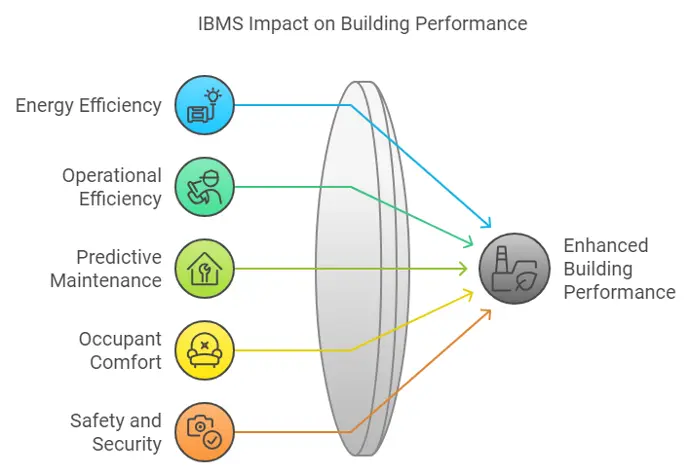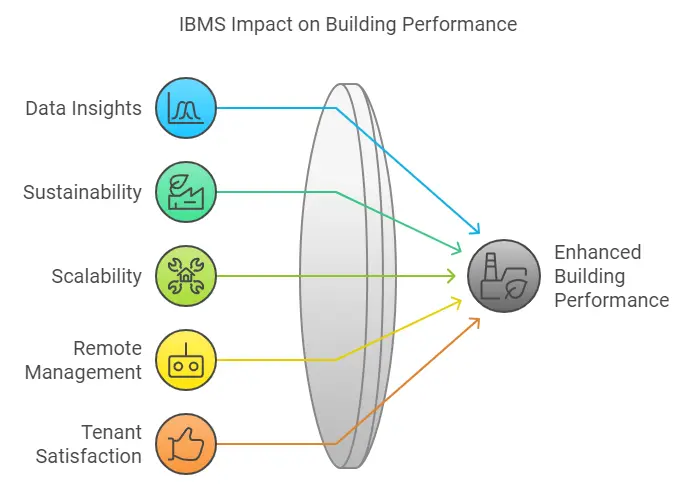As advancements in technology continue to march forward, efficiency and sustainability are no longer just buzzwords – they're necessities. As our smart technologies evolve, Integrated Building Management Systems (IBMS) are revolutionizing how we operate and maintain our structures.
An IBMS is a centralized, computer-based system that monitors, controls, and manages various building systems and services. It integrates multiple building functions into a single platform, allowing for more efficient operation and management of a facility. Here’s a look at 10 benefits that make IBMS an essential investment for modern buildings:

1. Enhanced Energy Efficiency
One of the most significant advantages of IBMS is its ability to optimize energy consumption. By integrating building systems like HVAC, lighting, and power management, IBMS can make real-time adjustments based on occupancy, time of day, and even weather conditions. This smart approach to energy management can lead to substantial cost savings and a reduced carbon footprint.
2. Improved Operational Efficiency
IBMS centralizes control of multiple building systems, allowing facility managers to monitor and manage everything from a single interface. This integration streamlines operations, reduces the need for multiple specialized staff, and enables quicker response times to issues as they arise.
3. Predictive Maintenance
Gone are the days of reactive maintenance. IBMS uses advanced analytics to predict when equipment might fail or require servicing. This proactive approach minimizes downtime, extends the life of building systems, and reduces overall maintenance costs.
4. Enhanced Occupant Comfort and Productivity
By continuously monitoring and adjusting environmental conditions, IBMS ensures optimal comfort levels for building occupants. This not only improves satisfaction but can also boost productivity in workplace settings.
5. Increased Safety and Security
IBMS integrates security systems, access control, and emergency response protocols. This comprehensive approach enhances building safety, allowing for quicker responses to potential threats or emergencies.

6. Data-Driven Decision Making
The wealth of data collected by IBMS provides valuable insights into building performance. Facility managers can use this information to make informed decisions about upgrades, renovations, or operational changes.
7. Sustainability and Green Building Certification
IBMS plays a crucial role in achieving and maintaining green building certifications like LEED. By optimizing resource use and reducing waste, these systems contribute significantly to a building's sustainability profile.
8. Scalability and Future-Proofing
As technology evolves, so too can IBMS. These systems are designed to be scalable and adaptable, allowing buildings to integrate new technologies and meet changing needs without overhauling the entire system.
9. Remote Management Capabilities
With IBMS, facility managers can monitor and control building systems from anywhere in the world. This remote access capability is particularly valuable in emergency situations or for managing multiple properties.
10. Improved Tenant Satisfaction
For commercial buildings, the advanced features and efficiency of IBMS can be a significant selling point for potential tenants. The promise of lower operating costs, improved comfort, and enhanced safety can attract and retain high-quality tenants.
Integrated Building Management Systems offer benefits that extend far beyond simple automation. By improving efficiency, comfort, safety, and sustainability, IBMS is not just an upgrade to building operations – it's a fundamental shift in how we interact with and manage our built environment. As we move towards smarter, more sustainable cities, IBMS will undoubtedly play a crucial role in shaping the buildings of tomorrow.